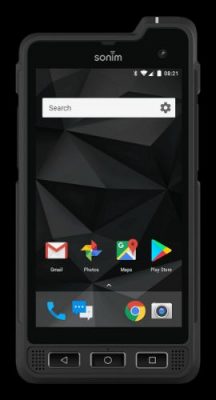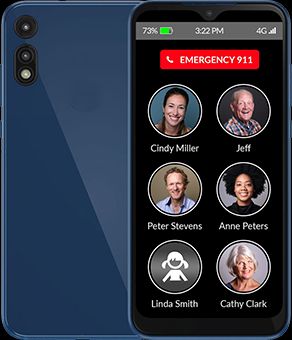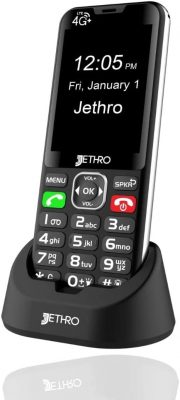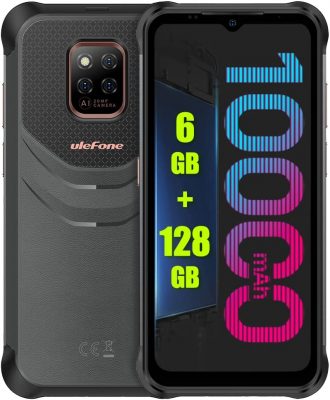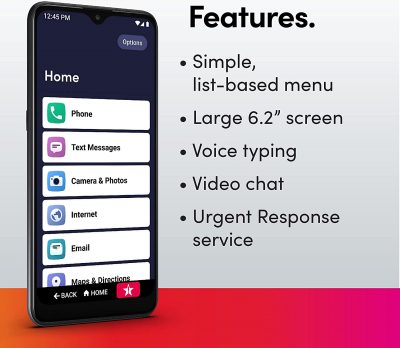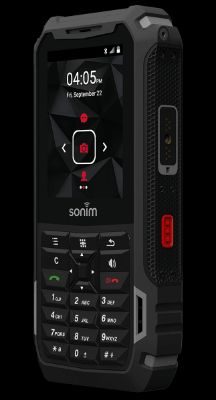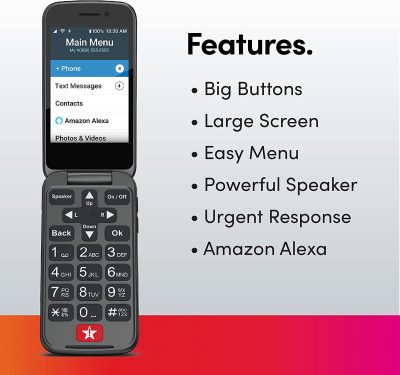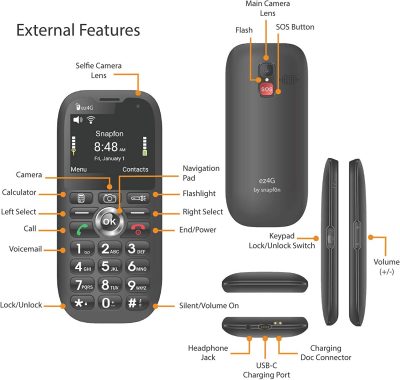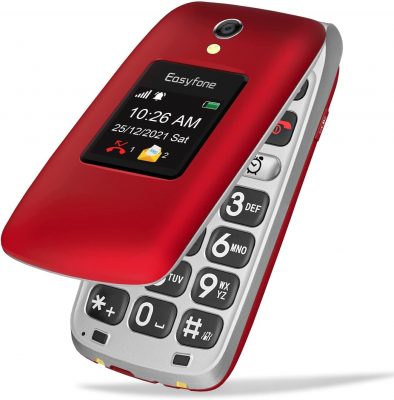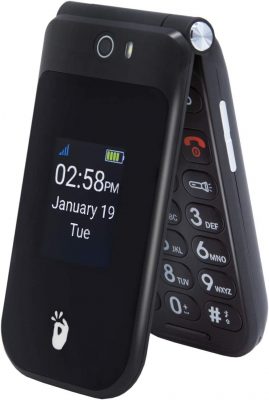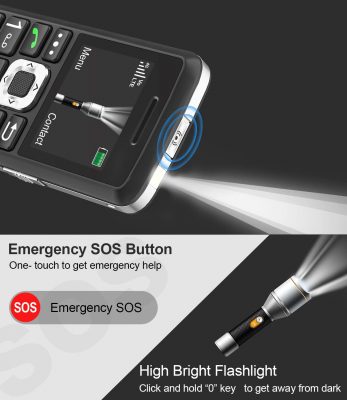Picking the best cell phone for seniors with Dementia or Alzheimer’s is a lot more taxing than getting the most impressive phone brand and calling it a day. Deciding on cellphones for seniors is already hard enough, but there are more than a few things to think about. Not only do you have to consider their understanding of phones and tech-savviness, but you also need to consider the effect of Dementia or Alzheimer’s on their ability to use their phones. From feature phones or dumb phones meant for basic communication to more advanced smartphones meant to support the elderly, there are a lot of choices. To help you get the most appropriate device for your loved one, here is our list of the best cell phone for seniors with Dementia!
Inside This Article
What Cell Phone Do Seniors with Dementia Need?
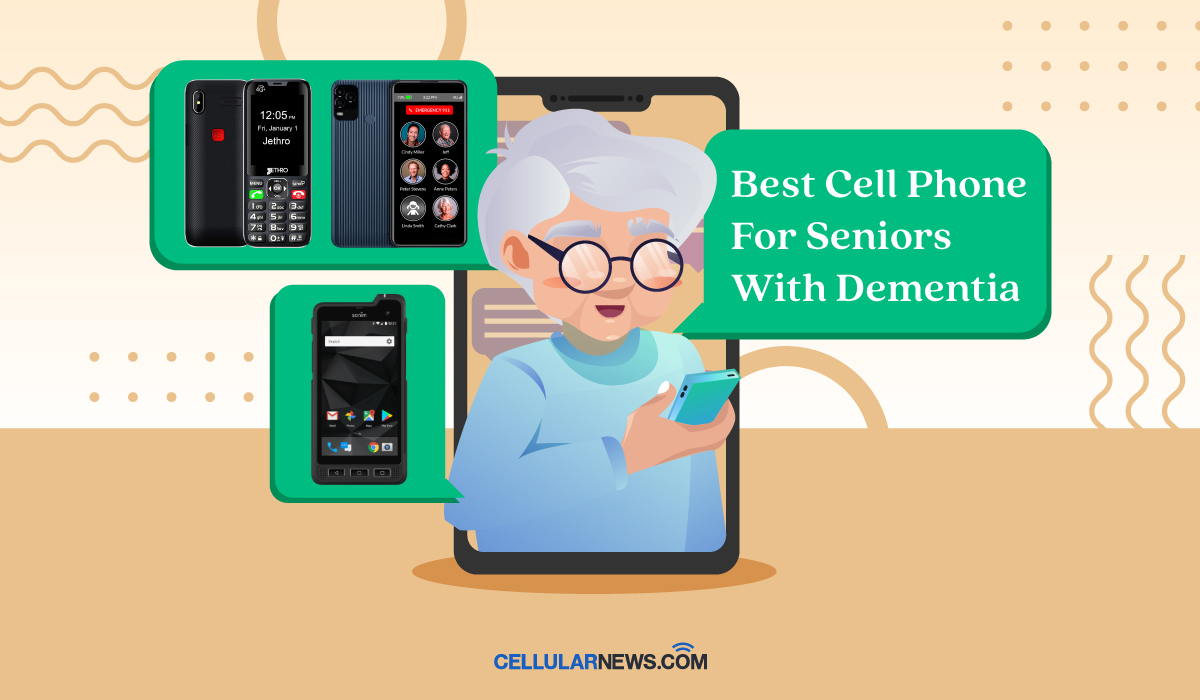
Before we start with a list of the best cell phone for seniors with Dementia, we first need to talk about why seniors with Dementia need a special phone. A lot of different diseases could result in Dementia, like Alzheimer’s, Parkinson’s, Huntington’s, and severe types of multiple sclerosis (MS). Dementia itself has different stages, ranging from patients having almost no symptoms to truly debilitating motor and mental problems. Throughout these stages, the phone patients would need changes depending on what they can do independently. Regardless of how early or late the stage of dementia your loved one has, a cell phone will give them more independence to go about their day-to-day lives.
There are several benefits seniors with Dementia get when they have cell phones. The first of these benefits is communication, as it lets seniors alleviate loneliness by talking with their friends and loved ones. There are other benefits to having a phone, depending on what type of phone they get. These include virtual assistants, automated reminders, calendars, GPS tracking, and SOS buttons for medical emergencies. All-in-all, the best cell phone for seniors with Dementia will allow them to better act by themselves and remember things they need to do. It also lets family and medical personnel quickly respond to emergencies or track their loved ones when needed.
The Best Cell Phone For Seniors With Dementia or Alzheimer’s
We have added some important information to each item on this list to help you choose which one is the best cell phone for seniors with dementia. We should note that while some of the phones on this list have integrated GPS tracking capabilities, they are only secondary features to the phone’s communication feature. Because of this, a phone’s tracking feature will always be less effective than actual GPS trackers for their protection.
Similar to phone GPS trackers, SOS buttons are only for alerting emergency services and loved ones that the owner is in danger. When going out, it might also be a good idea to have a personal safety alarm with your family to protect against other people. With that done, here is our list of the best cell phones for seniors with Dementia or Alzheimer’s!
Brand: Sonim
Type: Smartphone
Headphone Jack: Yes (Sonim SecureAudio Connector)
SOS Button: Yes
Our premium pick for the best cell phone for seniors with dementia is Sonim’s XP8. It is a tough, rugged, and reliable mobile phone meant for first responders, firefighters, electric linemen, and other dangerous occupations. It has several features for its user’s safety including an SOS button to call for help during extreme emergencies. The XP8 can also tap into the FirstNet network through the B14 frequency.
If that was not enough, this smartphone also runs on Android, which means it can use Google Assistant or other Android apps to make it easier to use. While a bit of an overkill for those asking what’s the best mobile phone for someone with dementia, Sonim’s XP8 smartphone has all the bells and whistles anyone would ever need.
Pros
- Follows Non-Incendive Class I, Div 2, Groups A, B, C, D; Class II & III, Div 2 standards to prevent electrical fires or explosions
- IP-69 water and dust-proof certified
- Dual front-facing speakers outputting more than 100dB
- Band 14 and FirstNet compatible
- Three-year warranty
- HAC M4/T4 compatible
Cons
- Expensive
- Available only direct from select carriers or Crossover (www.crossoverdistribution.com)
Brand: RAZ Mobility
Type: Smartphone
Headphone Jack: Yes
SOS Button: Yes
RAZ Memory Cell Phone may be a bit of a confusing choice for this list but still one of the best cell phones for seniors, nonetheless. The RAZ Memory Cell Phone is basically an overhauled starter Android phone with a custom Android 11 OS designed to make its operation easier for seniors, dementia patients, and people with mental disabilities. The custom OS has limited a lot of the phone’s advanced features like voicemail and limits the user to just the home screen.
Its always-on home screen can have six to thirty contacts displayed for quick dialing and has an emergency button to call 911 or RAZ Emergency Services. The best part of this phone, though, is its Remote Management features. This feature allows the caregiver to remotely manage everything about the senior’s cell phone through RAZ Mobility’s app or online portal. With it, caregivers can remotely edit contacts, set reminders, and track phone’s location among others. Aside from that, caregivers can also set the phone to only receive calls from numbers in the contacts list to prevent unwanted and predatory scams and calls.
Related: The Best Kid Tracker Apps
Pros
- Simple and easy-to-understand user interface
- Always-on home screen display
- Speakers permanently set on maximum
- Wireless charging compatible
- Free three months of Mint Mobile service
- Optional RAZ Emergency Service subscription
Cons
- Costly
- Limited capabilities
Brand: Jethro
Type: Featurephone
Headphone Jack: Yes
SOS Button: Yes
Our best value pick for this list is the Jethro SC490. Simple and basic without any of the additional tech that would only confuse the elderly, the Jethro SC490 is the perfect example of a talk and text-only phone. It has a 2.8-inch screen with large and easy-to-press buttons and an easy-to-use UI with a basic menu. Aside from this, it also has an included phone dock to make charging and remembering where the phone is easier. We recommend the Jethro SC490 for seniors with dementia that just need a working phone for emergencies and communication.
Pros
- Affordable
- HAC M4/T4 compatible
- 7-day a week local customer support (8am to 5pm PST)
Cons
- No voice control or AI assistant
- No internet
- Lack of GPS tracking
- GSM networks only (T-Mobile, ATT, etc)
Brand: Ulefone
Type: Smartphone
Headphone Jack: Yes
SOS Button: No
A solid runner-up to our premium pick cell phone for seniors with Dementia, Ulefone’s Power Armor 14 Pro is a heavyweight – literally. Weighing 1.52 pounds, the Power Armor 14 Pro makes a dent in your pocket. It does make up for its weight with its hardy construction and a powerful 10,000mAh battery that lasts several days on a single charge. While it does not have a specific SOS button, you can use Android’s emergency calls option and quick dialing for emergencies. Aside from these, the Ulefone Power Armor 14 Pro is a high-end Android phone best used by the more technologically inclined senior.
Pros
- Rugged and hardy with its MIL-STD-810G standard construction.
- Drop-to-concrete resistant up to 1.5m
- IP-68 water and dust-proof certified
- Large 10,000mAh battery
Cons
- Expensive
- GSM networks only (T-Mobile, ATT, etc)
Also Read: How to Fix Emergency Calls Only Error
Brand: Jitterbug
Type: Smartphone
Headphone Jack: Yes
SOS Button: Yes
The first Jitterbug phone on this list is the Jitterbug Smart 3, an Android phone with a heavily customized operating system. Made to be simpler to use for seniors and those with Dementia, it has a simple UI with a home screen displaying everything you can do with the phone at a glance. While this is a good thing, the Smart 3’s main selling point is its Lively service apps. The three apps, Urgent Response, Urgent Care, and Lively Link, require a Lively phone plan to provide immediate and timely emergency services when needed.
Pros
- Affordable
- HAC M4/T4 compatible
- Lively Emergency Apps and Services
Cons
- Requires a Lively phone plan to use its full features
- Limited Android features
Brand: Sonim
Type: Featurephone
Headphone Jack: Yes (Sonim SecureAudio Connector)
SOS Button: Yes
The XP5s is the featurephone counterpart of the XP8. Made with the same ideas as the XP8, the XP5s follow multiple standards of hardiness and reliability. Aside from lacking Android apps and functionality, the XP5s is a solid phone that fills all the requirements that dementia patients would need.
Pros
- Rugged and hardy with its MIL-STD-810G standard construction.
- Follows Non-Incendive Class I, Div 2, Groups A, B, C, D; Class II & III, Div 2 standards to prevent electrical fires or explosions
- FirstNet compatible
- Three-year warranty
- HAC M3/T4 compatible
Cons
- Expensive
- Available only direct from select carriers or Crossover (www.crossoverdistribution.com).
Brand: Jitterbug
Type: Smartphone
Headphone Jack: Yes
SOS Button: Yes
Similar to Jitterbug Smart 3, the Flip 2 is also a heavily customized Android phone. This time, the Flip 2 is based on an Android flip phone with a physical keypad and a non-touch screen. While still technically an Android phone, it is heavily limited to only the essential apps to limit confusion and make it easier to use for seniors with dementia. Besides the same restrictions of needing a Lively phone plan to use the Lively emergency apps and services, the Flip 2 basically functions as any other feature phone would.
Pros
- Affordable
- HAC M4/T4 compatible
- Lively Emergency Apps and Services
- Alexa AI Assistant
Cons
- Requires a Lively phone plan to use its full features
- Limited Android features
Brand: Snapfon
Type: Featurephone
Headphone Jack: Yes
SOS Button: Yes
Another company that creates phones with SOS buttons and provides independent emergency mobile monitoring is Snapfon. Its ez4G model has the feature a phone for seniors with dementia should have. Its main advantage is Snapfon’s own sosPlus Mobile Monitoring Service. A decent equivalent to Lively’s own emergency services, the sosPlus subscription service routes all SOS button presses to connect with the service’s emergency agents. They then contact emergency services, friends, and family or stay on the line to give advice and instructions until the situation is resolved.
Pros
- Simple and easy-to-understand UI
- Decently Priced
- HAC M3/T3 compatible
- Decent battery with 4.5 days of standby time
- sosPlus Mobile Monitoring Service
Cons
- Requires a Snapfon phone plan to use its full features
- GSM networks only (T-Mobile, ATT, etc)
Brand: Easyfone
Type: Featurephone
Headphone Jack: Yes
SOS Button: Yes
A good alternative to the Jitterbug Flip 2 and the Snapfon ezFlip 4G, the Easyfone Prime-A1 Pro is a well-designed flip-to-open feature phone. It has two screens, a main 2.4” LCD screen, and a secondary 1.44” outer screen to display updates and reminders. While the Prime-A1 Pro does not have the Lively or sosPlus emergency subscription services, it does have a programmable SOS panic button with GPS tracking and positioning. Family and friends alerted by the SOS button can SMS the phone with “EGPS” to get the phone’s Google map information so long as it is connected to the internet. Overall, it is a cheaper alternative to the other feature phones on this list while still retaining a GPS tracking feature.
Pros
- Affordable
- HAC M4/T4 compatible
- Decent 1500mAh battery
Cons
- GSM networks only (T-Mobile, ATT, etc)
Brand: Snapfon
Type: Featurephone
Headphone Jack: Yes
SOS Button: Yes
The Snapfon ezFlip 4G is quite similar to the Easyfone Prime-A1 Pro and the Jitterbug Flip 2 given their flip-to-open design. That said, the ezFlip 4G is basically the flip-phone version of the Snapfon ez4G with similar features, including 4G capability and a battery that can last 4.5 days on standby. Due to this, the question of whether to get the ezFlip 4G or the ez4G is a toss-up on whether your loved one wants a flip phone or a normal “brick” phone instead.
Pros
- Simple and easy-to-understand UI
- Decently Priced
- HAC M3/T3 compatible
- Decent battery with 4.5 days of standby time
- sosPlus Mobile Monitoring Service
Cons
- Requires a Snapfon phone plan to use its full features
- GSM networks only (T-Mobile, ATT, etc)
Brand: Easyfone
Type: Featurephone
Headphone Jack: Yes
SOS Button: Yes
The last mobile phone we recommend for seniors with dementia is Easyfone’s T200 4G model. Harboring the same ideas as Snapfon’s ezFlip and ez4G phones, the T200 is also a “brick” phone equivalent to the Easyfone Prime-A1 Pro. While it does have a weaker battery (1050mAh instead of 1500mAh), the two phones have similar features. There is one big exception to this similarity, however, as the T200 does not support GPS tracking. If your old folks with dementia have a risk of getting lost or straying away, we suggest getting the other models on this list instead of the T200. Seniors with earlier stages of dementia that aren’t tech-savvy will appreciate the T200’s charms.
Pros
- Low Cost
- HAC M4/T4 compatible
- Decent 1050mAh battery
Cons
- GSM networks only (T-Mobile, ATT, etc)
How to Choose the Best Phone for Seniors With Dementia

Since we went over our list of the best cell phone for seniors with Dementia, we should also give you a few tips when choosing the best one for your loved one’s situation. There are five main factors to consider when choosing a cell phone for seniors with Dementia. First, it should be simple and easy to use. Second, it must be equipped with emergency features like GPS and SOS button. The best cell phone for seniors with Dementia should also have assistive features. Its battery and charging must also be dependable. Lastly, it should be affordable but well-built.
1. Simplicity and Ease of Use
There are two main types of phones for seniors with Dementia — feature phones and smartphones. For most seniors, feature phones or dumb phones will be the easier ones to use. With a simple user interface (UI), actual physical keypads, and no-frills settings, feature phones are enough for most basic needs.
Smartphones, on the other hand, are more complicated and require some tech knowledge from their users. While harder to use, these smartphones have a lot more features compared to their feature phone brethren. When picking the best cell phone for seniors with Dementia, you should keep in mind how capable your loved one is when using their cell phone and whether they can handle complicated smartphones.
2. SOS Buttons, GPS, and Emergency Features
While we mentioned it earlier, SOS buttons, GPS tracking, fall monitoring, and other emergency features are just some of the more advanced features specialized phones for seniors with Dementia have. These features are important, especially for Dementia and Alzheimer’s patients who may find themselves in medical and physical emergencies more than other seniors. It lets them alert others when they are in distress and lets those people track them when they get lost. Make sure to check these and similar features are installed when choosing the best phone for your loved one.
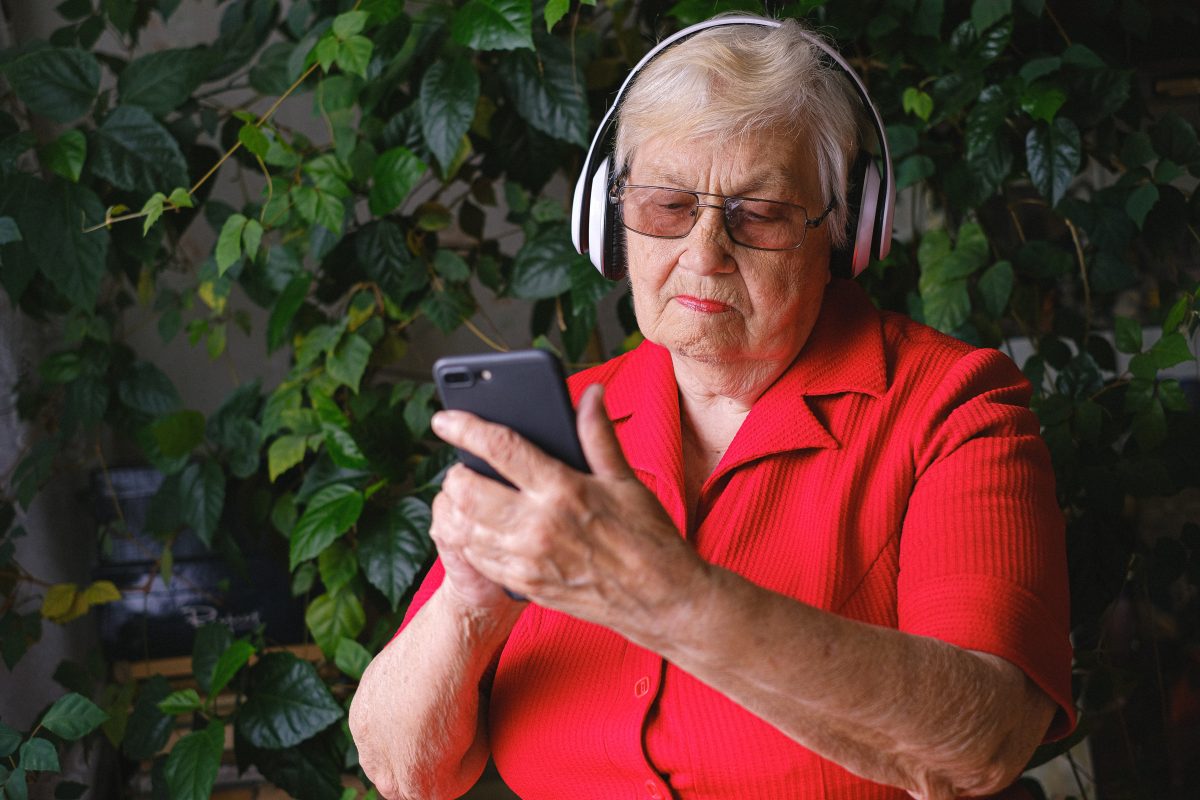
3. Voice Commands and AI Assistants
Another advanced feature in cell phones is voice commands and AI assistants. While mostly found in smartphones, a few dumbphones also have these features installed. There are three main AI assistants for smartphones: Alexa, Siri, and Google Assistant. Each of them uses different systems but is designed to work with voice commands. These two features can help seniors with operating their phones and can give out alerts and reminders when needed.
4. Battery and Charging
Battery capacity and charging are other factors to think about when picking the best cell phone for seniors with Dementia. Due to memory problems, there is a good chance their phones might not get charged regularly. Because of this, a phone with a good battery capacity and wireless charging capabilities is ideal for seniors. You should try to get a phone that has long operation times on one charge. Wireless chargers can also help keep their phone charged if they made it a habit to rest their phones on the chargers at night.
Also See: Qi Charging – What Is It And Is Your Phone Qi-Enabled?
5. Cost and Durability
There is another thing you should keep in mind when choosing the best cell phone for seniors with Dementia — its cost and if it can last. In general, smartphones are going to be more expensive than feature phones, but there might also be additional charges tacked on to both. Some features on either type of phone might only work if you have a subscription to specific carriers or services. A good example of this is the Jitterbug phone that requires a Lively plan to make use of its Urgent Response, Urgent Care, and Lively Link apps.
Finally, the last thing to think about when choosing a phone is its durability. Seniors are usually more prone to damaging their things by dropping or bumping them. Phones would fare even worse when used by patients with Dementia due to their impaired motor functions. Generally, feature phones can handle more abuse than smartphones due to their plastic construction and smaller screens. There are exceptions to this, though, such as Sonim’s XP8, which has IP-69 and MIL 810G certifications.
Overall, you would want to have a balance between what phone you can afford, its integrated features, the features that you have to subscribe to or pay extra for, and whether the phone can last.
Related: Waterproof Phone Pouches to Safeguard Your Phone
Best Cell Phone For Seniors With Dementia FAQs
Conclusion
There you have it — a list to choose the best cell phone for seniors with dementia! Do know that a cell phone also needs a compatible phone plan to work? Whether your gran uses a lot of call minutes or texts frequently, most companies offer specialized phone plans for seniors with lower costs and rates to suit their needs.

